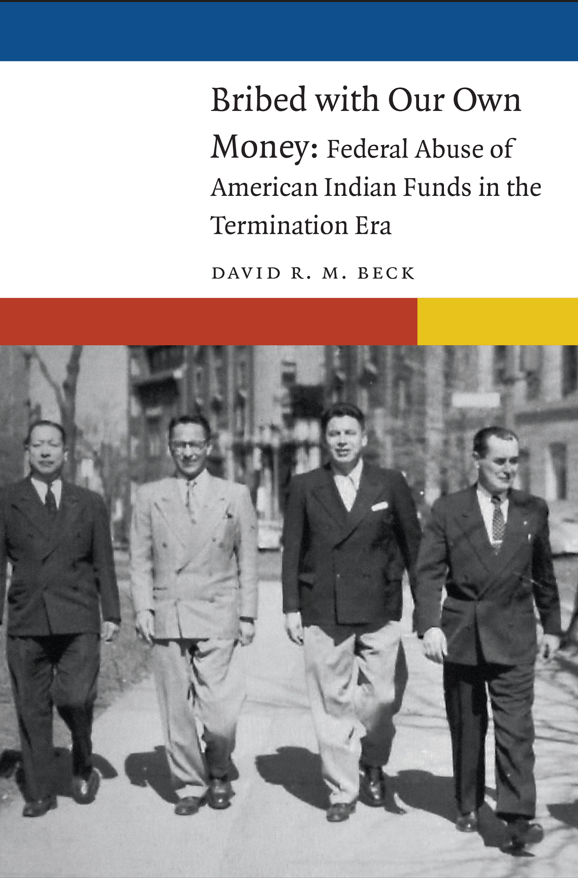Bribed with Our Own Money
Bribed with Our Own Money analyzes the successes and failures of Indigenous nations’ opposition to federal policy in the 1950s and 1960s. Focusing on case studies from six Native nations, Beck recounts how the U.S. government coerced American Indian nations to accept termination of their political relationship with the United States by threatening to withhold money that belonged to the tribes.
Termination was the continuation—and, federal officials hoped, the culmination—of more than a century of policy initiatives intended to end the political relationship between Indian tribal nations and the federal government. Termination was also intended to assimilate American Indian individuals into the country’s social and economic culture and to remove the remainder of reservation lands from federal trust. American Indians hoped to gain greater opportunities of self-governance and self-determination, but they wanted to do so under the protection of the federal trust relationship.
Bribed with Our Own Money analyzes both successful and unsuccessful efforts of Native nations to oppose this policy within the larger context of long-standing federal abuse of tribal funds. It is the first book to view federal termination efforts grounded in bribery for what they were: a form of coercion.
Praise for Bribed with Our Own Money
“In this landmark book for federal Indian policy, David Beck lays bare embedded practices of federal financial theft from tribes. Instead of serving as a proper trustee to tribal nations, the United States colluded across branches of government to spend funds in support of federal aims, intentionally leaving tribes bereft.”—Laurie Arnold (Sinixt Band, Colville Confederated Tribes), author of Bartering with the Bones of Their Dead: The Colville Confederated Tribes and Termination
“Beck’s documentation of the federal government’s cruel attempts at coercing tribal nations to accept political and economic termination by withholding what already rightfully belonged to them, while infuriating, provides important new insight into the motivations driving past policies and the continuing need to address and repair the detrimental impacts that continue to afflict tribal nations.”—Heather Whiteman Runs Him (Crow Nation/Apsaalooke), associate clinical professor in the Indigenous Peoples’ Law and Policy Program at the University of Arizona
“… a fine addition to a growing body of scholarly literature on the federal policy of termination.” —Jaakko Puisto, American Historical Review
